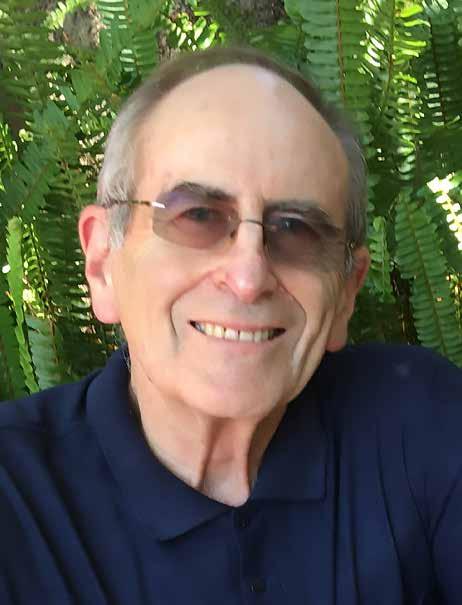
12 minute read
Terry McDonagh Secrets in Word and Music
A writer in a café sipping a coffee might be a cliché, but a writer in a café sipping a coffee on a floor above a bookshop is a joy worthy of several cups. And this pleasure is all mine as I sit with my coffee on the first floor of The Bookshop in Castlebar, County Mayo. Even the stairs up to the café from the floor below, is a step to an adventure. I’m gathering thoughts for a Live Encounters editorial. Moments like these are special – a time of waiting for something to happen – pondering on this and that, taking notes and ordering a second coffee. I think of the term, tabula rasa – of Peter Brook’s The Empty Space, where we are presented with a theatre space to fill with something exciting, interesting – enthralling even. My head is the empty space but I have five senses as well as memory, colour and daily experiences to draw on. It’s a tingling time.
Just recently, I’ve been working quite a lot in schools with children of all ages. I love this work with young people, as, in most instances, they are unspoiled – full of lovely nonsense and, unlike us adults, they, usually, don’t have a literary or theatrical reputation to defend. Thankfully, there are grown-ups of all ages that have remained childlike. As part of my work, I’ve had the pleasure of working with groups of young teenagers of varied cultural and linguistic backgrounds. I asked them to greet each other in their native tongue which led one student to suggest that language was music – and when people spoke in their native tongue – most of us couldn’t understand even though we were on the same topic – but we could listen to the music in the language. We ended up trying to guess what ‘others’ were saying. We, then, wrote in our own language and translated back and forth. On the one hand, this was a lot of fun, but, on the other hand, I was conscious of the importance of mother tongue as identity and enrichment. I lived in Germany for more than half my life where I learned to value being able to converse and communicate in more than one language.
© Terry McDonagh
We played with letters – took W.O.R.D and, in groups, made tableaus or frozen pictures of each letter which led us to conclude that a letter is a sketch, shape, picture or painting and when we put these ‘paintings’ together, we had a word...a sentence, a text, speech, poem or story. In like manner, we took lettering from other languages and played around with them to try and get a better understanding of what language really is all about. Letters become words and we use words to build a sentence – to communicate – which, in essence, is quite simple, but as we know, communication can be complex and can lead us to not only to elation and joy but, sometimes, into sad or tricky territory.
We chose the topic, Secrets Hidden in Words as a writing topic. I was asked why do you write? As I’d been asked this question many times over the years, I had constructed a poem, I Write Because, to save me having to explain each time I was asked.
I Write Because…
I write because
I’m on a train from home to here.
I write because
I see black sheep dotting mystery on a landscape.
I write because
I see children tussle with childhood.
I write because
I hear a Chihuahua doing battle in a handbag.
I write because
I hear a badger barking in my head.
I write because
I feel the urge to dislike words like outsider.
I write because
I feel a pen and anger in my hand.
I write because
I taste a lily-livered sun.
I write because
I taste angry salt on the swirling wind.
I write because
I smell smirking garlic in a sandwich.
I write because
I smell perfume before I see it.
I write because
I gallop into a gale with wild horses.
I write because
I can never trust a Mona Lisa smile.
I write because
I’m unravelling lines of light between trees.
I write because http://sydneyreviewofbooks.com/towards-the-equator-alex-skovron/ https://compulsivereader.com/2022/03/12/a-review-of-letters-from-the-periphery-by-alex-skovron/
I’m in a day that won’t come back to me.
I write because I write.
Sitting here with my scribbler and second coffee, I feel at ease – my time is being well spent, even if the term, time is money, is not part of my morning’s work. I’m quite sure my colleagues would be of the same opinion if asked why they write, and the power of words in their lives. A true friend of mine, the poet, Philip Casey, died in 2018. In January of this year, a collection of memories, by writers and friends of Philip’s, was published by Arlen House and launched in his native Gorey, County Wexford and in Dublin. I felt honoured when asked to launch this book in Gorey: Distant Summers – Remembering Philip Casey. It made me realize that a man who had dedicated his life to his love of letters and words was being recognized for his contribution to this world of literature. His body of work deserves to be remembered. ‘Words, words, words.’ This was Hamlet’s reply to Polonius’ question, ‘What do you read, my Lord? In this case, Hamlet suggests words are meaningless, but the power of ‘To be or not to be’ is indisputable.
When I think of the millions of words on the ground-floor shelves of this beautiful bookshop, I feel uplifted. I’m reminded of all the billions of words and pictures I have uttered and shared with friends and acquaintances in the course of my lifetime – and I try to imagine them shaping themselves into sentences, stories, legends, and tales for us to ponder on and have our lives enriched by the secrets hidden in those mountains of words. I often have to smile when I’m reminded of one young boy’s remark. When will you have made enough money to be able to give up this poetry writing?
I’ve done what I set out to do this morning and I won’t be giving up any time soon.
Alex Skovron was born in Poland, lived briefly in Israel, and emigrated to Australia as a boy. His family settled in Sydney, where he grew up and completed his studies. From the early 1970s he worked as an editor for book publishers in Sydney and (after 1980) Melbourne. His poetry has appeared widely in Australia and overseas, and he has received a number of major awards for his work. His most recent collection is Letters from the Periphery (2021); his previous book, Towards the Equator: New & Selected Poems (2014), was shortlisted in the Prime Minister’s Literary Awards. Skovron’s collection of short stories The Man who Took to his Bed (2017), and his novella The Poet (2005), have been published in Czech translations; The Attic, a selection of his poetry translated into French, was published in 2013, and a bilingual volume of Chinese translations, Water Music, in 2017. His work has also appeared in Dutch, Macedonian, Polish and Spanish. The numerous public readings he has given have included appearances in China, Serbia, India, Ireland and Portugal. In 2023 Alex Skovron was honoured with the Patrick White Literary Award for his contribution to Australian literature.
Brave Music
‘Our proper bliss depends on what we blame.’ – Alexander Pope, Essay on Man
This weather needs to see someone: every day the track diverges, spiteful quiz. The sun settles hydraulically enough into a soft horizon, but come dawn you resign to the accusative printout beside the toast; for overnight the cool warmth of spring surrenders to the next boldface epiphany – stormquake, insurrection, landfill, surgical mistake –and a world so full of words stares dyslexic into another singularity, its sizzling discharge already brutal as truth. The civilized suburbs dog-paddle in a pool of poems, or scurry indoors trailing rumours of apocalypse, while the soundwaves batter the naked countryside, toxic with untruth, eyeless with righteous abomination born of a plotline unalloyed in three millennia. Someone needs to see this weather, cry the believers, merely a matter of time before the Time –but a globe turns, the intervals spell out a braver music to belie the elements, it thrusts beyond the stars; and poetry makes poetry happen, whose lines slant back down across a timescape luscious and arid, exultant and no less afraid.
Caravanserai
The outcome was never in doubt
Whatever could be done had been done
We guessed what the game was about
There was nothing new under the sun
We tried our best to dissuade them
Gentle bribery, a hint of blackmail
But nothing served to persuade them
And our suit was destined to fail
I wondered if the way it concluded
Was foretold and couldn’t be altered
But we’d chosen our path, and pursued it
Until choices ran out and we faltered
We were poorer to go than to come
(I’m referring to nothing material)
Our leaving was an unhappy one
Our mood you could say was funereal
Yet a lesson had been digested
So we pulled up our stakes and departed
The future was still there to be tested
Our next journey there to be started
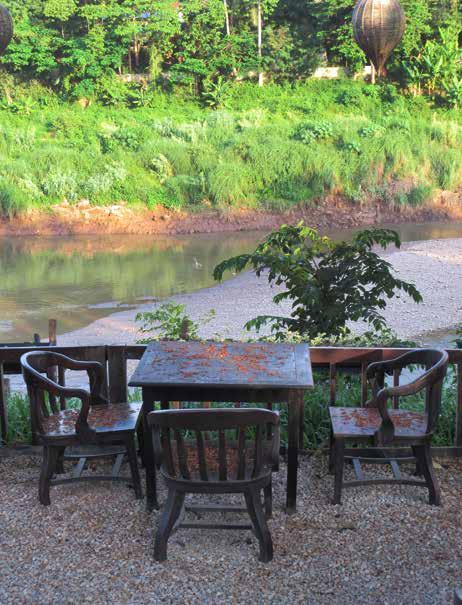
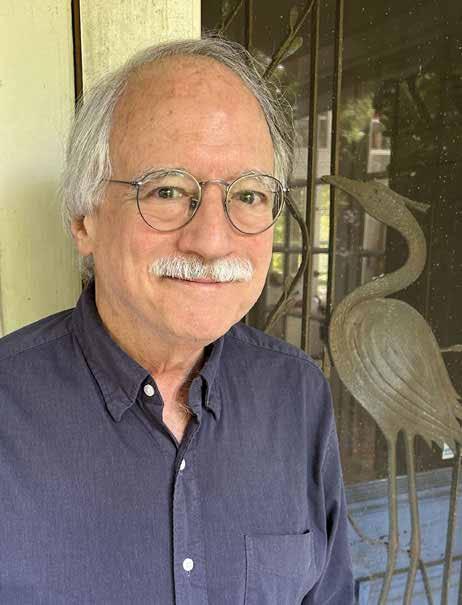
John Philip Drury is the author of five books of poetry: The Disappearing Town and Burning the Aspern Papers (both from Miami University Press), The Refugee Camp (Turning Point Books), Sea Level Rising (Able Muse Press), and The Teller’s Cage, which will be published by Able Muse Press in January 2024. He has also written Creating Poetry and The Poetry Dictionary, both from Writer’s Digest Books. His awards include an Ingram Merrill Foundation fellowship, two Ohio Arts Council grants, a Pushcart Prize, and the Bernard F. Conners Prize from The Paris Review for “Burning the Aspern Papers.” He was born in Cambridge, Maryland, and grew up in Bethesda, raised by his mother and a former opera singer she called her cousin but secretly considered her wife. (His book about them, Bobby and Carolyn: A Memoir of My Two Mothers, will be published by Finishing Line Press in August 2024.) After dropping out of college and losing his draft deferment during the Vietnam War, he enlisted in the Army to learn German and served undercover in the West German Refugee Camp near Nuremberg. He used benefits from the GI Bill to earn degrees from Stony Brook University, the Writing Seminars at Johns Hopkins, and the Iowa Writers’ Workshop. After teaching at the University of Cincinnati for 37 years, he is now an emeritus professor and lives with his wife, fellow poet LaWanda Walters, in a hundredyear-old house on the edge of a wooded ravine.
Ode to a Bureau Chief
I threw away the letter you sent me, declining to sponsor our FBI club, a brainstorm for my gang of would-be detectives, grade-schoolers drunk on your forensics lab, the wanted posters (enclosed by you), and the street-front where agent trainees looked for cut-out figures to pop up in windows, doorways, and then Think fast—Do I shoot?—Oh no, a housewife! No, a child!—Too late now, wish I’d missed— Oh-no, Ma Barker got me with her tommy gun!
Not really a G-man, since they had to stage your arrest of Alvin Karpis, agents serving him up for you to collar. You qualify as a B-man: B for bureaucrat, B for bigot, who wiretapped and tailed, harassed and hounded Paul Robeson and Martin Luther King. Do we know you from the Clint Eastwood film— cross-dressing at parties, the partner you kissed? Gayness almost redeems you, but hypocrisy ruins it.
You’re dead now (yay!) but not forgotten (boo!) Blackmailer with a badge to enforce his grudges. Cop who never walked a beat. Censor of divergent thought. I did end up an investigator, after all. Thanks for not sponsoring our club. Or tracking my activities. I’ve put you on my Most Unwanted List.
Andante
We know it means “Go slow,” the tempo mark, but it refers, literally, to walking, an easy-going pace, not rushed, not sluggish. As Ammons says, “A poem is a walk,” and inspiration comes from moving feet, the groove of strolling through a neighborhood.
Praise to the dog for taking me on walks! At first, the puppy seemed too reverent to piss or shit outside, to make a mess on grass, but soon he learned to feel at home with nature, like a true Wordsworthian.
We both relieve ourselves in different ways. For me, a walk expels the numbing static that crackles in my mind. It helps tune in the distant signals on that radio.
More sociable than any social network, dog-walking unites the peripatetics who know the dogs’ names, not each other’s, finding nature within the city limits, regularity making them receptive to noticing the secrets in plain sight— a hawk, swooping from gingko to the crown of a bare oak, a sparrow fleeing into the mouth-hole of a mask nailed to a trunk in a yard full of terracotta faces.
The ritual gives me a good excuse to meditate and clean up excrement, knowing the tasks are complementary. And our Italian Greyhound, tugging the leash, is so excited to run into his friends and frolic through their yard, while I converse with neighbors who are digging holes for saplings.
The dog goes cruising like a motorboat, exultant in the breeze and then the calm that settles when he stops to sniff the grass. I turn around and follow the trees’ progress, happy the fallen leaves are still unraked— a beach that’s rich in conchs and mother-of-pearl.
Days in Key West
Awake, I walk a balcony of dreams over a courtyard’s tendrilled net of leaves, zigzagging, knowing the sea’s on the other side of hotel doors. Palm trees have broken through the canopy of blue-sky vines. Below, the elevator opens. I proceed under dangling blossoms, a garden that gives delight by hanging above where a walker roams.
No labyrinth. It’s easy to get out.
Who wants to, though, with beauty so outré and so immured, like thought. Yet I emerge, attracted to a dock at the end of the street: a crane unloading pilings from a barge. Next day, a heron’s idling on the quay.
Photograph credit: https://pixabay.com/photos/heron-sea-nature-bird-wildlife-1357037/
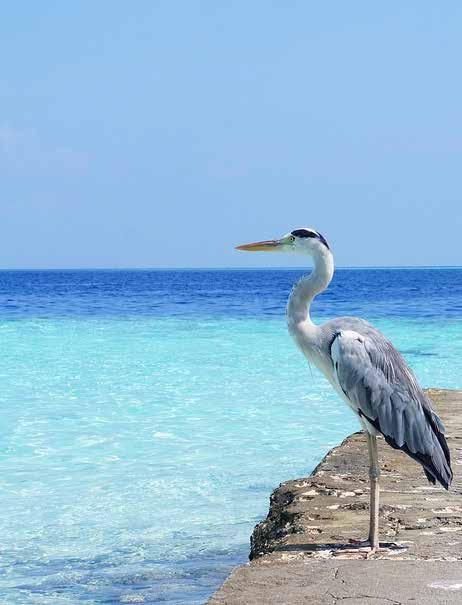
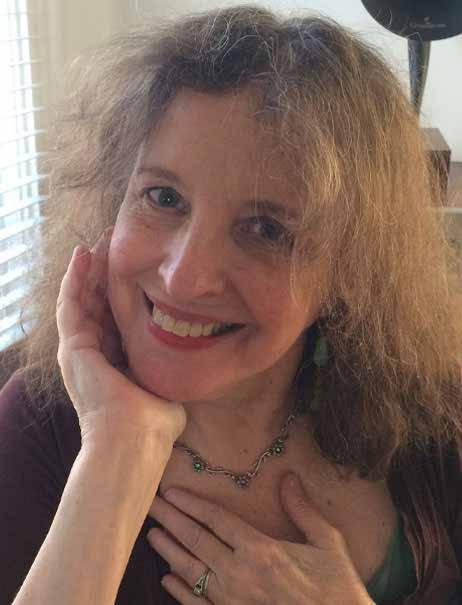
LaWanda Walters earned her M.F.A. from Indiana University, where she won the Academy of American Poets Prize. Her first book of poems, Light Is the Odalisque, was published in 2016 by Press 53 in its Silver Concho Poetry Series. Her poems have appeared in Poetry, Georgia Review, Nine Mile, Radar Poetry, Antioch Review, Cincinnati Review, Ploughshares, Shenandoah, The American Journal of Poetry, Laurel Review, North American Review, Southern Poetry Review, Alligator Juniper, and several anthologies, including Best American Poetry 2015, Obsession: Sestinas in the Twenty-First Century, and I Wanna Be Loved by You: Poems on Marilyn Monroe. She received an Ohio Arts Council Individual Excellence Award in 2020. She lives in Cincinnati with her husband, poet John Philip Drury.
Hotel Eden
to Karen Friedland
I wish you a Joseph Cornell box, one he made himself from secondhand stores or the five and dime. With postcards sent from old vacations, cursive letters in faded blue ink, children’s rubber balls and mirrors, jacks, magazine pictures and a fishing cork, somehow he’d devise the celestial. “White magic,” he called it, the opposite of the surrealists’ work. A marble in each of five clear aperitif glasses, set upon one shelf, a photo of a parrot for Juan Gris.
He finagled in universes and miles of air and impenetrable secrets, placed them just exactly right in his basement workshop— the air, the small compartments painted white like walls in the tropics, the parakeet in “Hotel Eden” like a concierge trying to arrange a connection for someone, holding the end of a coil of wire in its upraised beak, a regular telephone operator— Only connect only connect covered them with glass, made them immortal.
Outside, on the back lawn of the house where he took care of his brother and mother, he was cavorting with his true love, the artist who painted red dots everywhere, Yayoi Kusama, (there are photographs of them together) until his strict mother, who liked spying from her bedroom window, dumped a pail of water down on their earthly delights.
White-Hearted Water
Her head on the pillow looked something like Beethoven’s— square-jawed, a beauty once, a flirt, a true musician. Now her mouth was open for what little oxygen she accepted as if she were being polite, trying petit-fours at a reception.
She was already far from us, in spite of the brave, raspy breathings in. And that is why I could not see the dying. That awful nurse was still there, refusing, in her waspish rightness, to give her more morphine, looking wide-eyed at our sinfulness. It sounds like she’s drowning, I pleaded, and she told us that’s what it was, the lungs filling with water—and so we sat there as needlessly as people on a ship watching a flailing mermaid.
Perhaps she was caught on the knot of some wide net, her arms cool and fattened as flippers, her eyes shut to us. I touched her gently, afraid I would hurt her, but she didn’t complain. She’s “still staying,” my sister said, and we couldn’t believe the nurse’s statement that “she wasn’t uncomfortable.”
I tried to breathe at that unearthly rate— like a dolphin’s deciding to stop her own heart.
I couldn’t stand it and went home to bed. My father and sister saw the final breath. Though I missed my mama’s dying, they said she looked the same, her mouth still open when they took the mask off. She got whiter, and that was all there was to know. Anne Sexton wrote that the dead are worse than stone—and it’s true, there was no way, then, to break through to the brave, temperamental mother we’d known, telling us that death, too, would be an amazing experience, but sharing nothing of it, now, with children, as she stopped her breathing by the sea at St. Simon’s.




